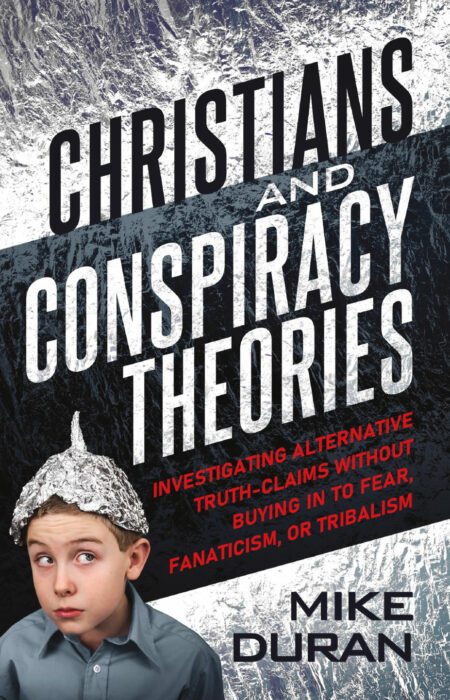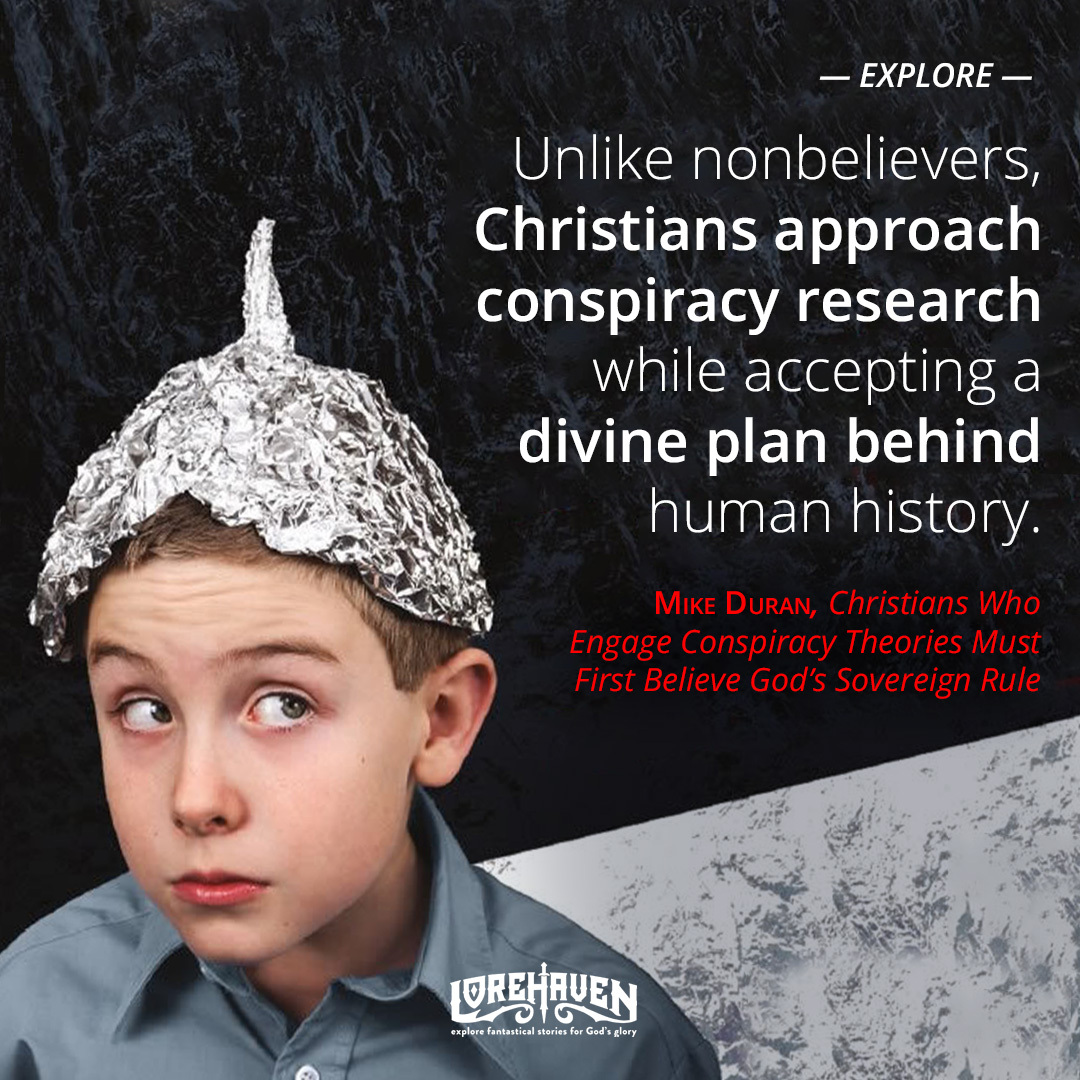Christians Who Engage Conspiracy Theories Must First Believe God’s Sovereign Rule
Despite the assertion of many possible futures, Christians believe the Scripture reveals a rather specific unfolding redemptive plan.1 While it could involve technology, nuclear war, and even non-terrestrial entities, the biblical timeline envisions our world culminating in global cataclysm, war, spiritual deception, persecution of Christians, the appearance of the Antichrist, Armageddon, the Second Coming of Christ, and the Final Judgement. Yes, there are different branches of eschatology. But the Church has historically believed that most of these aforementioned elements will constitute the End Times.
Thus the Christian approaches conspiracy research from the perspective that there is a Plan behind human history.
Why people find comfort in conspiracy theories
In his book on conspiracy theories, Michael Shermer quotes Alan Moore, author of the graphic novels Watchmen and V for Vendetta. Apparently, Moore conducted his own research into conspiracy theorism and concluded,
The main thing that I learned about conspiracy theories is that conspiracy theorists believe in a conspiracy because that is more comforting. The truth of the world is that it is actually chaotic. The truth is, that it is not the Jewish banking conspiracy, or the Gray aliens, or the 12-foot reptiloids from another dimension that is in control. The truth is far more frightening. Nobody is in control. The world is rudderless.2
Michael Shermer is an atheist, often considered part of the New Atheists, an outspoken group of authors promoting atheism. Shermer quotes Moore in the context of a larger point about cognitive biases, specifically locus of control. Locus of control involves perceptions of power; feelings of having it or not. According to Shermer, those who possess “a high internal locus of control” are confident in their judgments and skeptical of outside authority and opinions. This person is the least susceptible to believe in conspiracy theories. People who have a high external locus of control, tend to believe conspiracy theories because “they place too much emphasis on what is happening to them or what others are doing to them.”
 Atheist believes no one rules the world
Atheist believes no one rules the world
So in theory, the person with a high internal locus of control can better handle the chaos of our world than the person who requires external order. However, it’s Moore’s general observation about the nature of the world that I find so fascinating. He says about the Cosmos, “Nobody is in control. The world is rudderless.”
Seeing the world as “rudderless,” with no-one “in control,” is diametrically opposed to a biblical worldview. This contrast between the atheist’s perspective of conspiracy theorism versus the Christian’s is extremely important.
The person who sees the world as Unguided, without Purpose or Oversight, does not look at it the same way as the person who believes in an all-powerful God with an active Plan. Whereas the atheist sees the world and its events as chaotic and rudderless, the Christian sees the world and its events as part of an intricate meta-narrative. Everything happens for a reason, and all events are funneling us to the collapse of this world system, the Second Coming of Christ, and the Final Judgment.
Christians believe our sovereign God rules the world
Of course, this is not a license to force every event or figure on to an eschatological timeline. Being anticipatory and aware of a divine plan is not a green light for reckless prophetic claims. In the Parable of the Wheat and the Tares (Matt. 13:24-30, 36-43), Jesus describes counterfeit Christians (tares) as growing in immediate proximity to genuine believers (wheat). But rather than uprooting the tares and risk uprooting the wheat, Jesus said, “Let them both grow together until the harvest” (v. 30). The “harvest” is then described as the final judgment in which the just and the unjust are eternally divided.
The Parable of the Wheat and the Tares is a reminder that our judgment is imperfect. Waiting for God’s final verdict (in this case, the final judgment) is often the right thing to do. Such an approach is appropriate as it regards controversial claims. When researching some conspiracy claims, sometimes the best thing to do is forgo judgment and simply wait. In this sense, agnosticism is, once again, a reasonable response to certain conspiracy theories.
One reason Christians should be interested in conspiracy theories is because we believe that Someone is in control; the world is not “rudderless,” and events do not happen randomly. The world is moving towards an appointed end. Many conspiracy theories intersect, in some fashion, with biblical worldview themes. Theories about a New World Order, digital tracking, globalization, governmental cover-ups, the spread of evil, mass manipulation, the increase of paranormal phenomenon, etc. might all play a role on God’s unfolding Plan. In this sense, Christians have a fundamentally different approach to the world and what transpires in it than does the secularist. Not only are we “a pattern-seeking intelligence,” we believe that God is weaving a “pattern” we are to intuit.
- This article is excerpted from Christian and Conspiracy Theories (2023), nonfiction by Mike Duran. Reprinted with permission. ↩
- Michael Shermer, Conspiracy: Why the Rational Believe the Irrational, Johns Hopkins University Press (2022), pg. 77. ↩




































As a Christian I also believe in the devil–God’s enemy–who manipulates men and women from behind the scenes. But Satan is just a created being and subject to the sovereignty of the Lord.